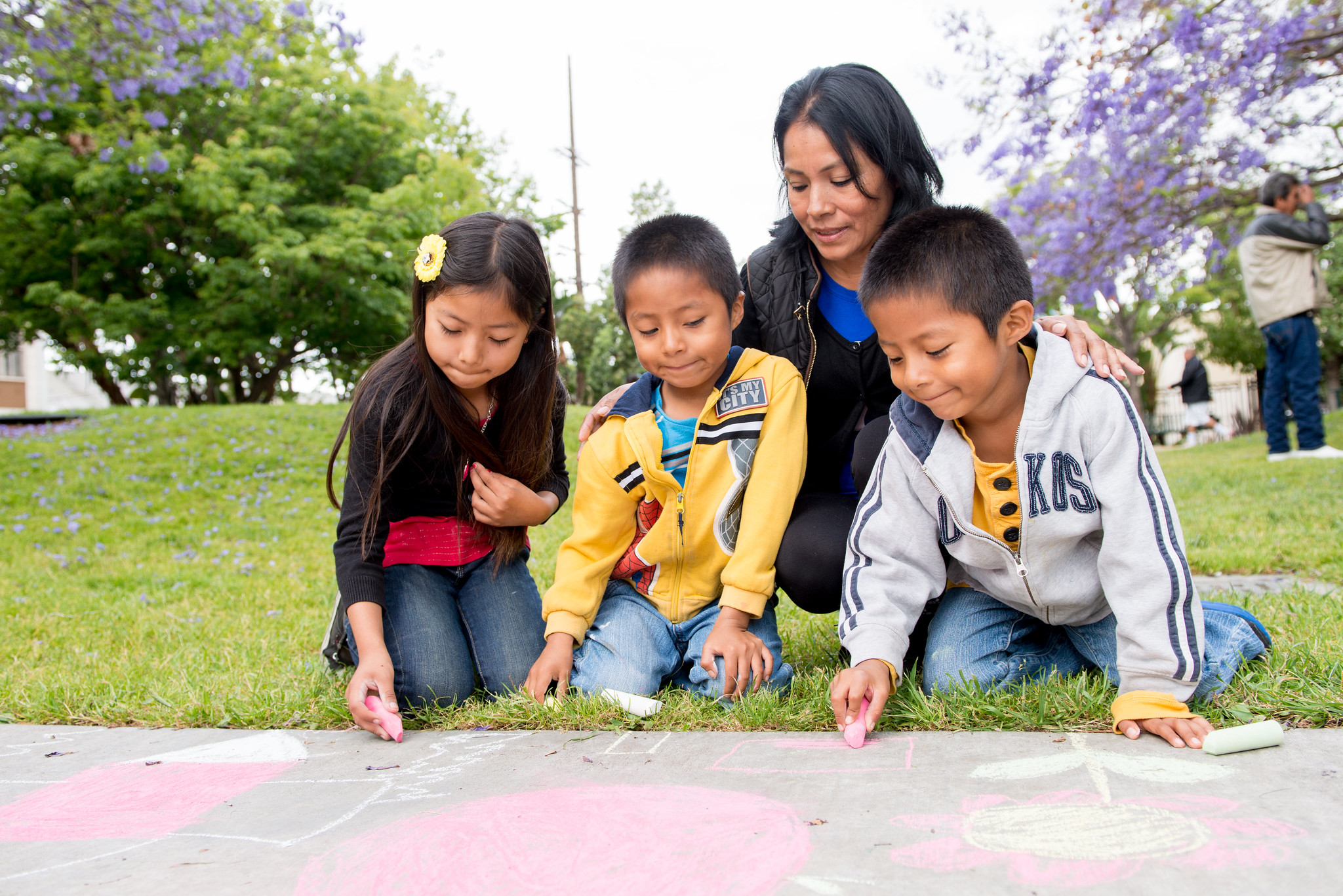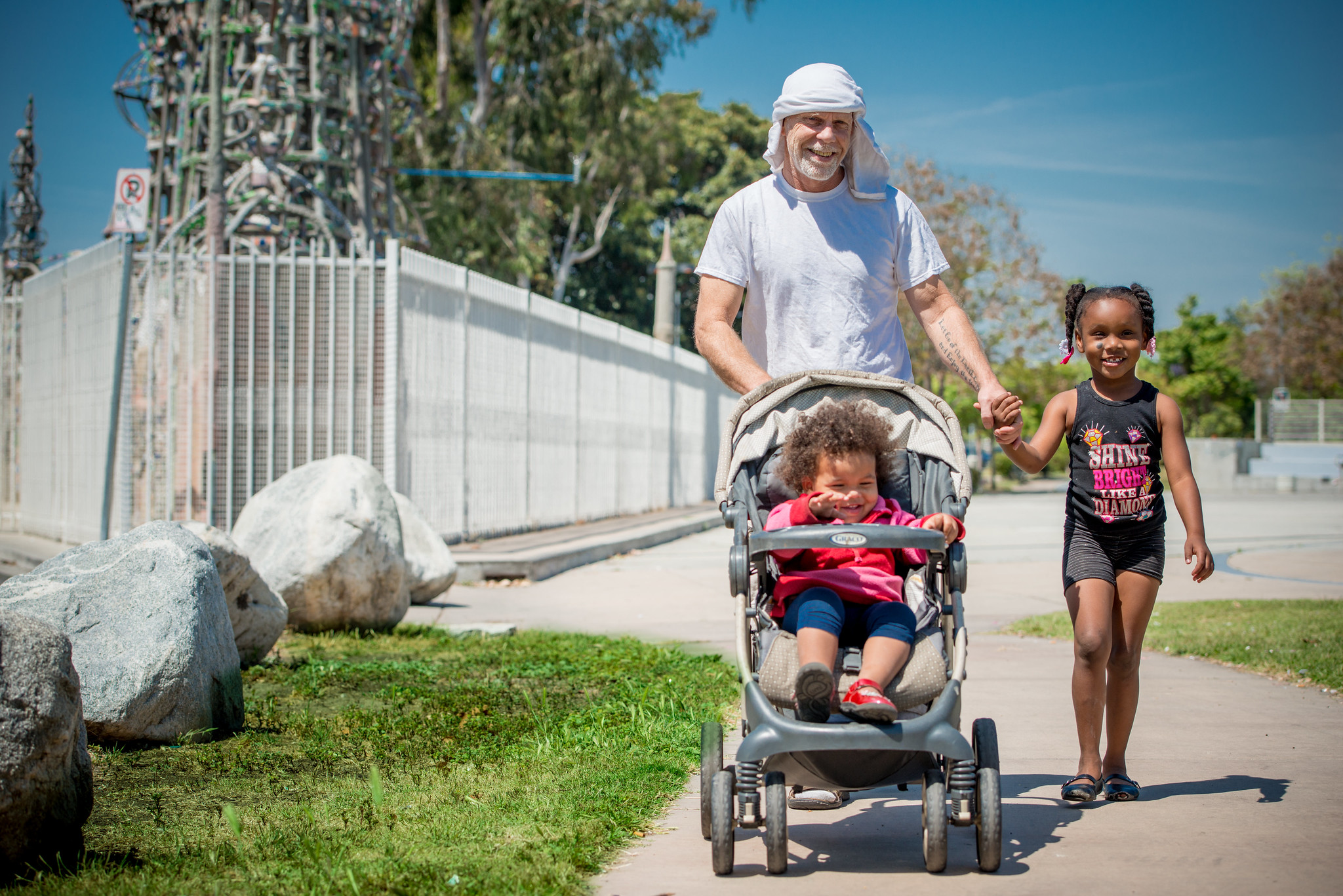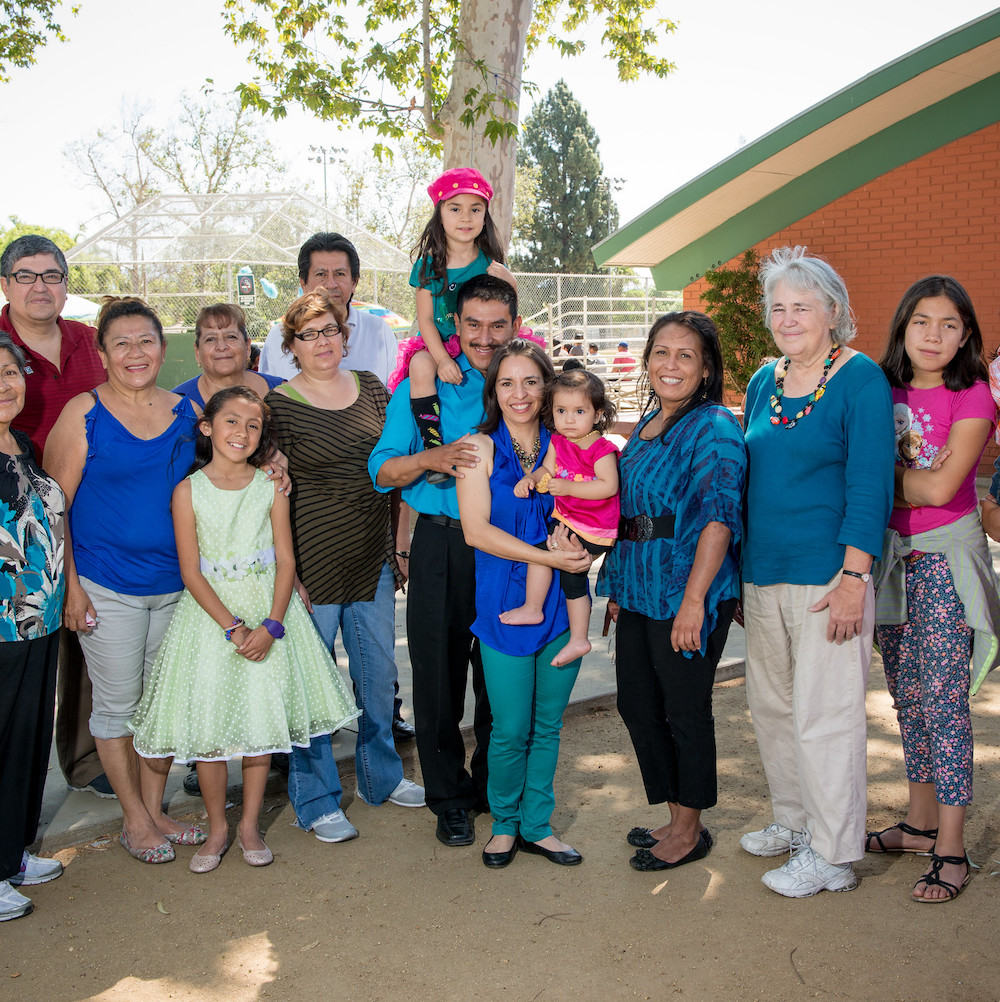July 29, 2021
The COVID-19 pandemic and the resulting relief effort put First 5 LA’s Best Start regional network initiatives to the test over the past year. While the impacts of the pandemic and the historic inequities that underlie the crisis continue to be felt deeply, the accomplishments that Best Start was able to achieve is a testament to the strength of community-led work.
The initiative’s accomplishments during the worldwide health crisis underscored how Best Start works best: for the community and by the community. Whether it’s gathering diapers and baby formula, distributing bags of fresh produce, organizing testing and vaccination sites, delivering staples to homebound residents, or supporting educational outreach efforts, the work done over the past year show that strength and resilience lie at the heart of every community, and that solutions to transform communities work best when led by the community themselves.
On top of the pandemic-related activities, Best Start’s five regions made important strides in their aim of changing the systems that impact families with young children: educating voters on funding priorities, promoting advocacy, building partnerships and networks with public and private entities, connecting residents to resources and empowering community members with resources that enhance leadership skills and build knowledge.
That’s what Best Start was intended to do. Launched in 2009, the First 5 LA initiative aims to cultivate community partnerships where parents and residents can become powerful catalysts to achieve positive outcomes for the children and families. Best Start works to catalyze, strengthen, elevate and scale empowering and innovative approaches generated by communities — approaches that improve the community conditions that affect young children, their families and their surrounding environments. As such, Best Start is a critical factor in First 5 LA’s work toward achieving its North Star by 2028: all children in Los Angeles County will enter kindergarten ready to succeed in school and life.
The following is an update on progress made toward this goal in each of the five Best Start regions:

Best Start Region 1 – (East LA, Metro LA, South El Monte/El Monte, Southeast LA)
First 5 LA Regional Grantee: Para los Niños
Achieving community transformation through partnerships with both residents and organizations continued to take center stage in Region 1 over the COVID-19 pandemic. Both parties played a vital role during the emergency response to the pandemic and shaped the Region’s long-term vision for systems change.
As the lockdown took hold in March, Region 1 Grantee Para Los Niños determined that data collection about the community’s needs and experiences was essential. Carried out through various methods including one-on-one phone calls, the Regionwide Needs Assessment Survey found the biggest necessities were food, sanitary and baby items, and school supplies. Para Los Niños and First 5 LA organized 18 distribution hubs with 17 organizations and vendors so residents could walk to pick up free personal protective equipment and food. Within a month, 1,300 families were being served weekly.
However, it soon emerged that many residents were homebound in quarantine and could not pick up food. First 5 LA connected Para Los Niños with LA Metro, which stepped in to provide drivers through its Via ride-sharing program to deliver weekly bundles of groceries, diapers and sanitary items to residents in their homes.
Para Los Niños’ COVID-19 response and recovery efforts have won recognition. Last summer, the nonprofit received grants from the Robert Wood Johnson Foundation and the Momentum Fund to support ongoing systems change initiatives. And in January, the California Community Foundation awarded Para Los Niños a $1 million grant to scale its food distribution model to 3,800 families across the county.
Region 1 was also active in getting residents involved in civic efforts. While the pandemic hindered Para Los Nińos ability to engage with Region 1 residents through their typical in-person strategies, the organization adapted to the moment, with awareness campaigns that were organized with vehicle caravans as a way of safely reaching residents to educate the community about the importance of participating in the Census 2020.
In August, Para Los Niños carried out a Community Impact Survey and used the 330 completed questionnaires to engage residents and organizations in a participatory process to create the Best Start Region 1 Driving Equity & Justice Community Bill of Human Rights, a blueprint for creating equity for low-income and marginalized populations in Los Angeles. Formally presented in a virtual forum to public officials in April, the document notes 10 main areas for improvement, including parks and recreation, public transportation, quality childcare and broadband internet access.

Best Start Region 2 – (Broadway-Manchester, Compton-East Compton, Watts-Willowbrook, West Athens)
First 5 LA Regional Grantee: Community Health Councils (CHC)
In addition to responding to the pandemic emergency, deepening community engagement became the key theme over the past year in Region 2.
One aspect of engaging residents was the South LA Connected initiative aimed at bridging the digital divide through Onward, a new, bilingual online community platform. Onward guides residents to public and private resources in a variety of areas, including healthcare and employment.
The other aspect of involving more residents in their community took place under the South LA Decides initiative, which aims to put more decision-making power directly in the hands of residents. In February, Region 2 launched its first Community Grantmaking Initiative with 555 residents voting on a list of 21 issues they would like to see addressed in South LA. Employment and fair wages were rated the top priorities, followed by early childhood education, food insecurity, digital divide and maternal and infant health. Michelle Burton, chief strategy officer & director of CHC’s Social Change Institute, noted that South LA historically has the lowest voter turnout in the state. The goal of South LA Decides is to empower residents so they can see firsthand how their input can affect policy and system change, thereby increasing civic engagement and voter turnout in elections, she said.
After the survey, two representatives were elected from each of the four areas in Region 2 to form the Regional Task Force charged with ensuring that grant funds are spent in accordance with the community’s stipulated priorities.
In response to the pandemic, community leaders working in Region 2 distributed boxes of food and personal protective equipment to long lines of residents waiting in vehicles. And after seeing farmers had to destroy crops because they had no place to store them during the pandemic lockdown, CHC bought produce such as oranges from the farmers, not only saving much-needed food but also agricultural jobs.
Best Start Region 3 (Northeast San Fernando Valley, Panorama City & Neighbors)
First 5 LA Regional Grantee: El Nido Family Source Center
Region 3 focused its work on the empowerment of individuals, communities and institutions to create systems change by promoting leadership development , establishing networks and relationships, and sharing resources. Activities also focused on using trauma-informed practices to promote shared well being and self-efficacy, with the ultimate goal of creating a more equitable and inclusive community.
Region 3’s Alliance United Collaborative held monthly meetings for residents and organizational representatives to share resources, build relationships, discuss opportunities, and work collectively to better serve families in the San Fernando Valley. Additionally, these meetings led to the development of a proposal to the L.A. County Department of Mental Health for the “We Rise” campaign to promote mental health awareness.
At the request of parents and residents in the Northeast Valley, Region 3 held anti-racism trainings for residents and partner organizations about the root causes of systemic oppression.
El Nido continued its Welcome Baby and home visiting programs, which aim to support and strengthen families starting in pregnancy. Outreach to engage more of the region’s Black families was carried out through a partnership with the African American Alliance Advocating for Children and Youth, which in turn partnered with community organizations, churches, and local Boys & Girls Clubs.
At the institutional level, the participatory budget initiative got underway whereby residents voted on the issues they considered most important and would most like to see receive grant monies for improvement.
El Nido worked closely with the LA Unified School District to create awareness of the challenges of distance learning for many students. A promotoras pilot project was set up to work at early childhood education centers to connect parents to health and social programs. The goal is to have LAUSD fund the program after the pilot is completed.
Best Start participant Eduardo Najera detailed how workshops in leadership and parenting have helped him strengthen his relationship with his own family and community. He said a workshop for fathers that focuses on child raising and education was particularly transformative. “After a few classes, partners and children always say, ‘What’s going on in these workshops, because you’ve changed completely!’” he said. “Fathers take more interest in their children.”
During the COVID crisis, El Nido oversaw the distribution of $2.5 million in relief funds for families in need.
Best Start Region 4 – (Central Long Beach, Wilmington)
First 5 LA Regional Grantee: The Nonprofit Partnership
The lack of affordable housing and the pandemic’s impact on early childhood education providers were the major issues of concern raised by residents in Region 4.
The continued need for quality, low-cost housing was raised during an extensive community priority-setting process that took place in 2018-19. These concerns regarding housing later informed the Central Long Beach’s first participatory budgeting process in 2020, where residents voted on how best to spend $$450,000 in grant funds.
In Central Long Beach, Best Start community organizer Maribel Mireles said affordable housing became a major priority when she and many of her neighbors began receiving notices of large rent hikes — and later, eviction notices — due to corporations buying buildings in their community. In response, she helped organize protests and joined a tenants’ union that successfully advocated for a city council ordinance banning evictions over inability to pay increased rent, as well as another ordinance against tenant harassment. Activities also included workshops about tenant advocacy, as well as immigrants’ rights and trauma resilience.
During the pandemic, Best Start worked with the City of Long Beach to ensure that the needs of infants and young children were included in the economic recovery efforts. The Nonprofit Partnership (TNP), the Best Start Region 4 Grantee, was among a handful of organizations selected to administer federal CARES Act funding in Long Beach. TNP distributed approximately $275,000 to 156 childcare providers and advocated for $2.1 million in additional federal funding for childcare providers in the American Rescue Plan Act.
In Best Start Wilmington, community leaders leveraged relief funds for emergency food and supply distribution. A farmers market fresh produce program reached 1,500 families who received bags of fresh fruit and vegetables, milk, eggs and honey; a total of 912 parents benefitted from the distribution of PPE, diapers, infant formula, learning kits and sanitary supplies. Best Start also set up walk-in and drive-thru COVID-19 testing and vaccination sites and conducted educational outreach about the virus.
In other work to improve public policy and effect systems change, Best Start built partnerships with over 40 organizations in the community. Civic engagement and systems change activities also included supporting members who were appointed to the Neighborhood Council, Long Beach Post Community Editorial Board and the Pedestrian Advisory Council for the City of Los Angeles.
Best Start Region 5 – (Lancaster, Palmdale)
First 5 LA Regional Grantee: Children’s Bureau
Child abuse prevention is an ongoing focus of work in the Antelope Valley, the county’s most isolated area. In recent years, three children have died from abuse and maltreatment despite having been in contact with the child welfare system.
To address this issue, Best Start Region 5 joined the Antelope Valley Resource Infusion, comprising private foundations, public entities and community nonprofits, to develop solutions that increase the safety and well-being of children and families. The partnership has been canvassing residents for their input and identified four main areas of concern: insufficient support for parents within the child welfare system; a shortage of medical and mental health providers and trauma specialists; the lack of affordable recreational activities for children after school; and racism and lack of racial diversity in local leadership. As the community action plan to address these issues is developed, a special focus will be placed on strengthening Black families, who make up a disproportionate number of local child welfare cases, due in part to systemic racism that is affecting the child welfare system.
Political advocacy formed another large part of Region 5’s work on these issues. Best Start parents gathered signatures in support of two state bills: AB 31, which would provide independent oversight over the child welfare system through the creation of the Office of the Child Protection Ombudsperson, and AB 1450, also known as Gabriel’s Law, which would require law enforcement to send reports of severe neglect and abuse to the state Department of Justice. Unfortunately, both bills did not pass.
Civic engagement was a priority for the region as well. In 2020, Best Start parents led a caravan of vehicles through their neighborhoods, urging participation in the census.
Best Start in Region 5 was very involved in supporting families during the pandemic. Best Start began the campaign of Foster Care Bags of Hope which created welcome bags for children entering Emergency Foster Care. The bags included items supporting Covid 19 prevention and support for accessing resources for foster parents and families with children prenatal to age 5. Another part of COVID relief was administering $150,000 in relief funds. Some 3,000 families benefited from the Bucket of Hope program, a blue bucket full of basic necessities.
The collaborative also teamed up with the Department of Public Health and AV Resource Infusions to promote COVID 19 vaccination awareness with events throughout the Antelope Valley in collaboration with several CBOs and faith-based organizations.









